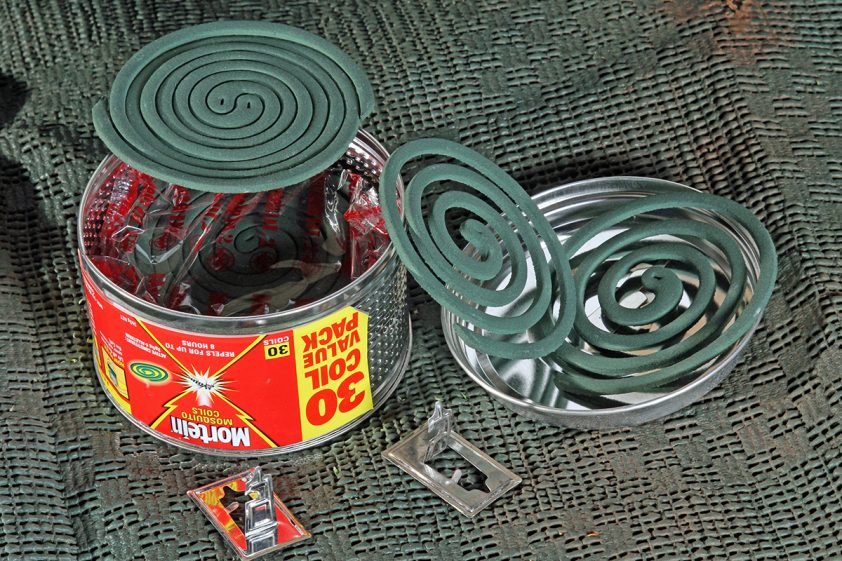The impacts of insects are synonymous with the Australian bush, whether it be the insistent buzzing in the night as a mosquito zeroes in on an exposed patch of skin or the onslaught of flies seeking moisture around your mouth and eyes to name just two.
Different people attract bugs to varying degrees. Genetics is involved, but a combination of steroids, uric acid and/or cholesterol (not necessarily related to cholesterol in the blood) in a victim’s skin and sweat make a difference. A person’s size can also impact the amount of CO2 they exhale attracting mosquitoes as a result.
MIDGES

Biting midges (a.k.a. sand flies) are common around coastal areas in much of Australia but are not known to transmit any diseases to humans. Their feeding mechanism causes large, raised marks on the victim’s skin filled with damaged tissue and saliva containing anticoagulants. Certain individuals “sensitised” through repeated exposure to their bites can develop an allergic response. Midges prefer dull still days with high humidity when seeking a meal and are most active at dawn and dusk and are put off by wet and windy conditions.
MOSQUITOES
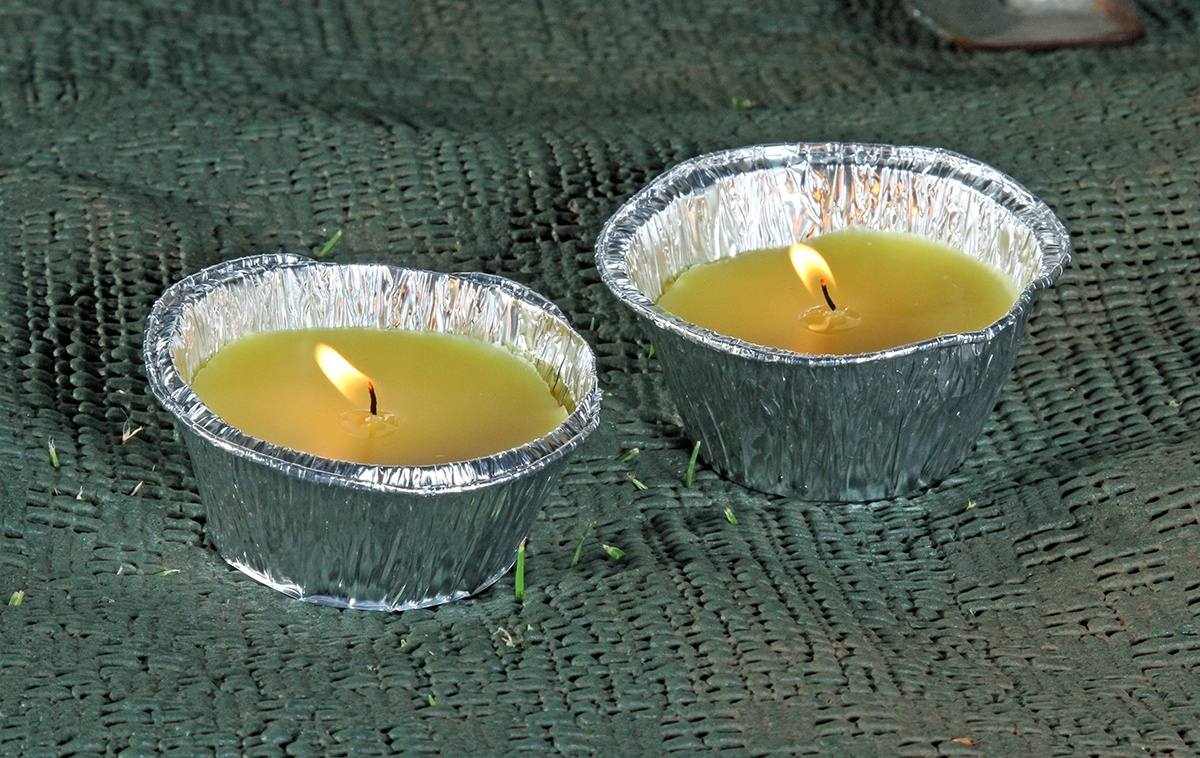
Of the over 300 species of mosquito in Australia, about 20 are of concern in that they can and do carry diseases, including the Barmah Forest and Ross River viruses. These are known to be found around the rural fringes of many major state capital cities, not just in the tropical north.
Dengue fever occurs in FNQ but cases are being reported further south with climatic warming. Murray Valley encephalitis, which occurs in north-west Australia, is potentially fatal. Light is a major factor in mosquitoes finding you. Insects of all kinds will zero in on camp lights. Minimise this by choosing orange or yellow coloured lights or carry yellow cellophane in your camp kit and wrap your light(s) with it at the first sign of bugs. Alternatively, try locating a bright white light upwind of your camper to draw off insects.
FLIES
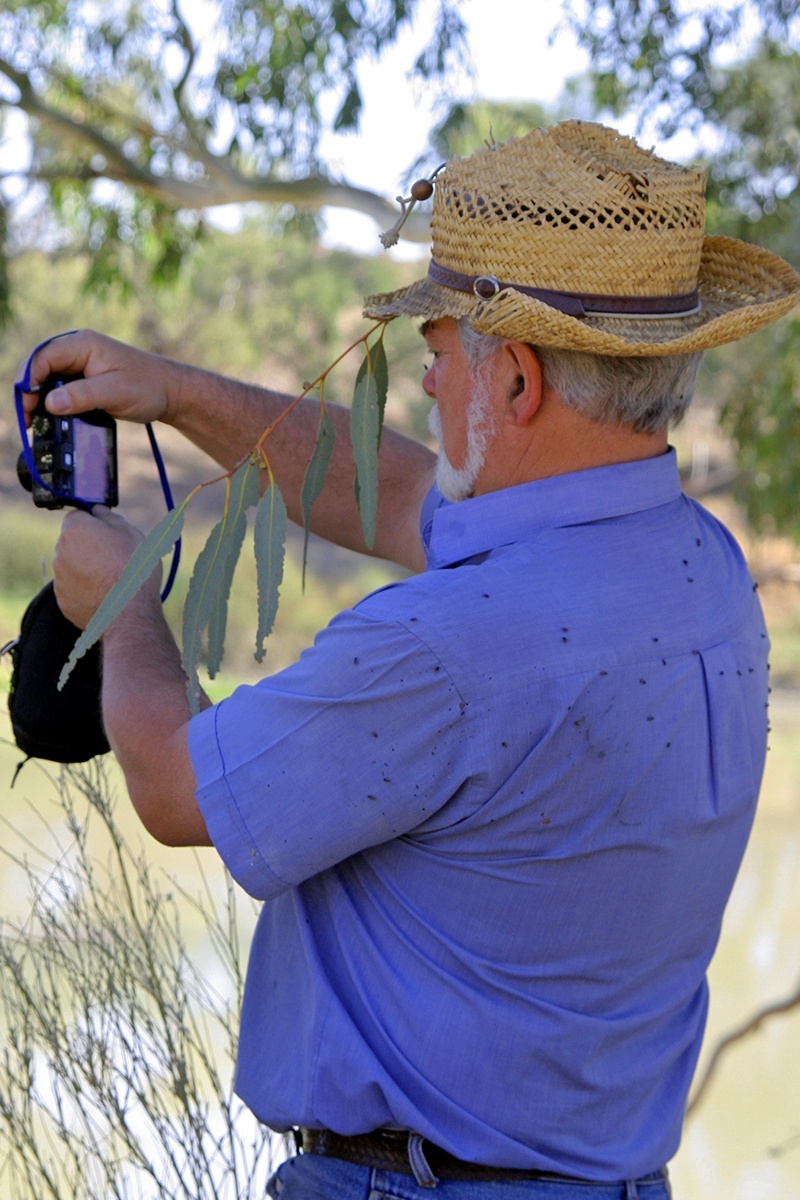
Flies have existed on this continent for millions of years but have become significantly more common since animal husbandry was introduced by Europeans. Flies invade our faces for the protein-rich moisture from our eyes, nose, ears and mouth, as well as salts, carbohydrates or sugars they may find. House flies and blow flies are content to enter your shelter but bush flies dislike being trapped and avoid it at all costs.
FIRST DEFENCE
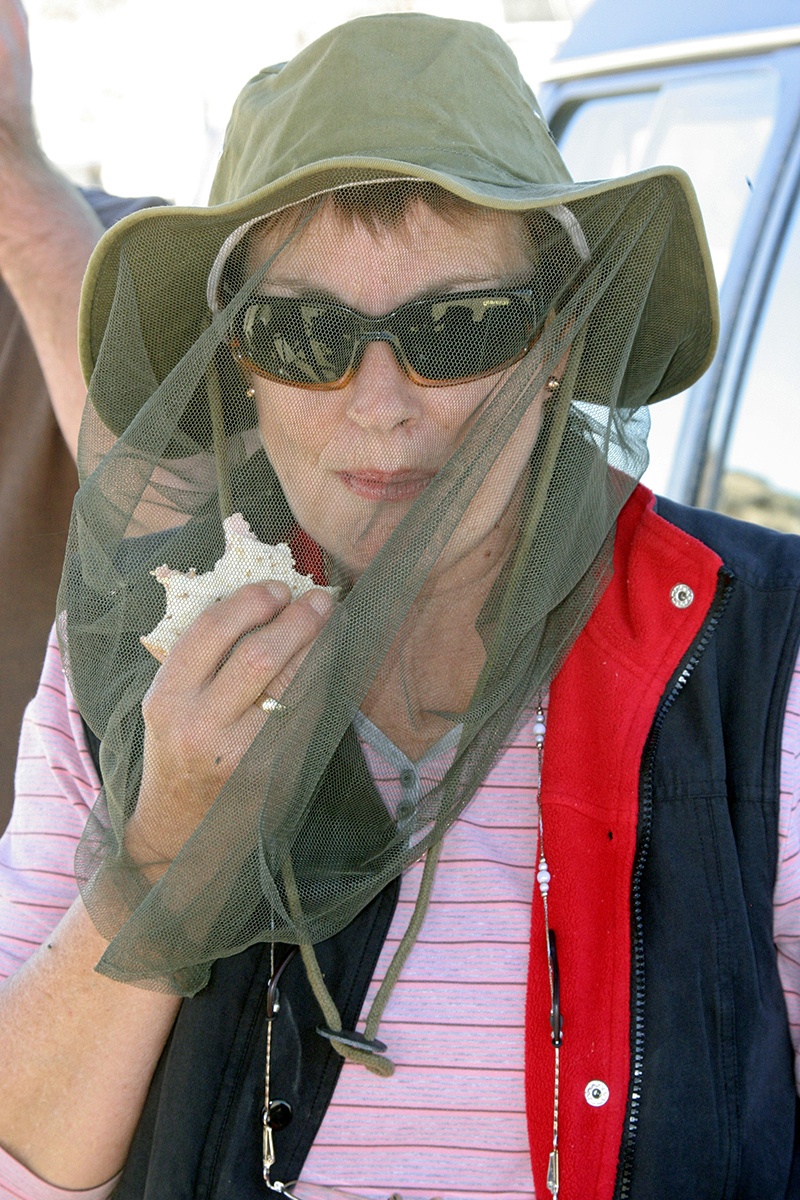
Insect screens do a good job of keeping out pests – until you open them and let them in. Insect screens around your awning can be confining but will greatly reduce exposure to the bities when used in conjunction with draught skirts and other barriers where all access points are closed. Wear clothing with long sleeves and pants legs plus closed shoes and longer socks, though be aware that mosquitoes can bite through a single layer of lightweight material. A hat with a hanging screen around the brim does a good job of keeping insects away from your face and neck.
Choose a campsite away from standing freshwater and away from bush and trees, which can shelter insects. Keep clear of swampy ground and rubbish, such as old tyres and cans, which can hold water. Avoid dark clothing, and minimise heat (which raises CO2 exhalation) and salty or high potassium foods that increase your lactic acids which are an attractant. Sweetly fragrant hair products, perfumes, fabric softeners, sunscreens and soaps are also reported attractants for some insect pests, especially mosquitoes.
REPELLENTS
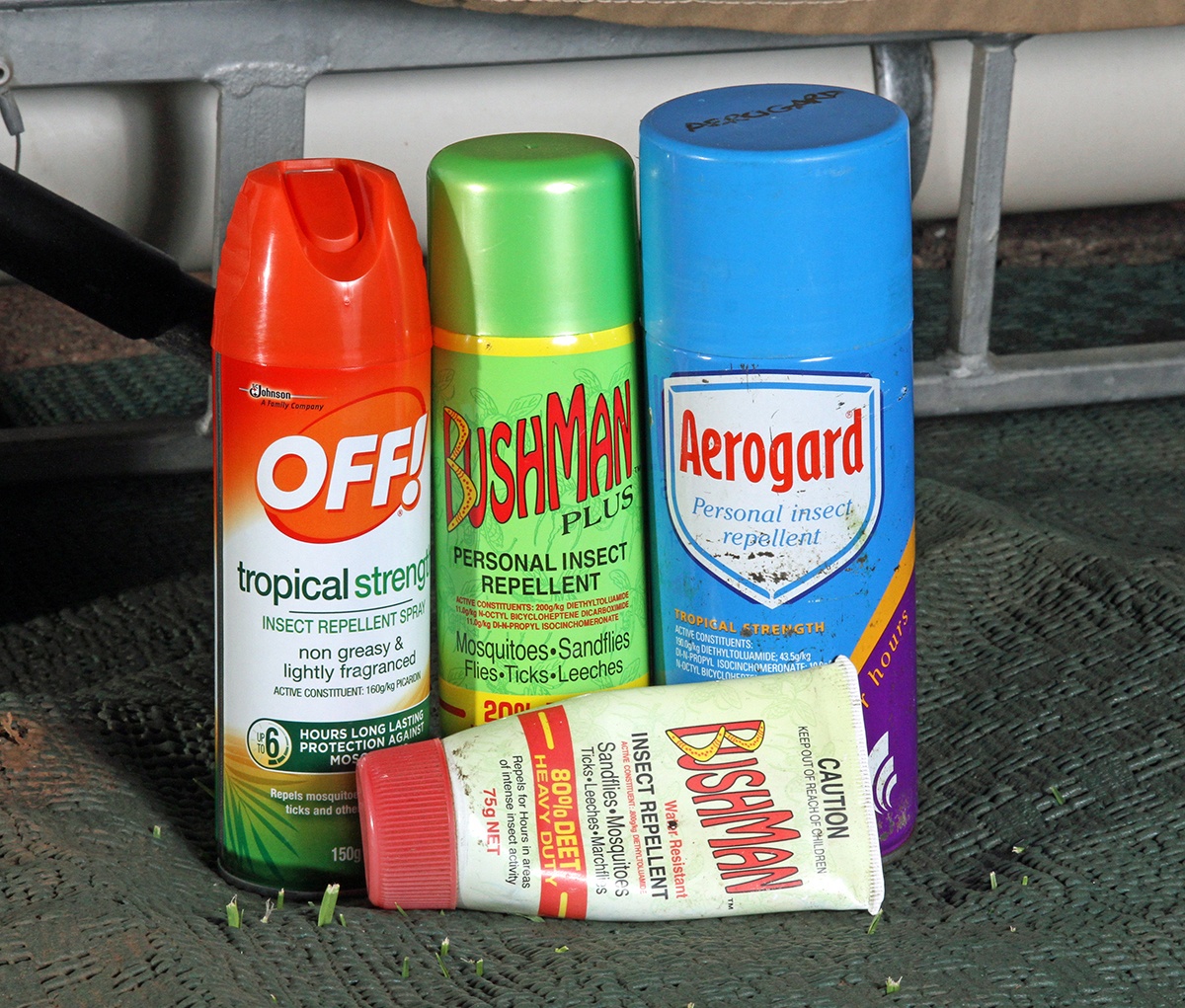
There are many commercially-available repellents designed to make your “smell” unpleasant to insect pests sold in sprays, patches, creams or liquids. Their success and tolerance vary from person to person with the most effective containing DEET. DEET is largely regarded as safe, but can produce allergic responses in some people and should not be used on broken skin. Authorities say DEET is unsuitable for babies under two months old and recommend limiting its use on children under two years to three times a day at concentrations levels no greater than 10 per cent.
If you wish to avoid chemical repellents you can make your own using essential oils such as (but not limited to) citronella oil, lemon eucalyptus oil, cinnamon oil, rosemary oil or lemongrass oil blended with a carrier oil. These will require frequent application (about every two hours) and vary in effectiveness according to your personal chemistry and the species of insect. Blends of these are often more effective and recipes can be found on the internet. Some sunscreens, dilution by water or sweat and evaporation may diminish their effectiveness.
OTHER METHODS
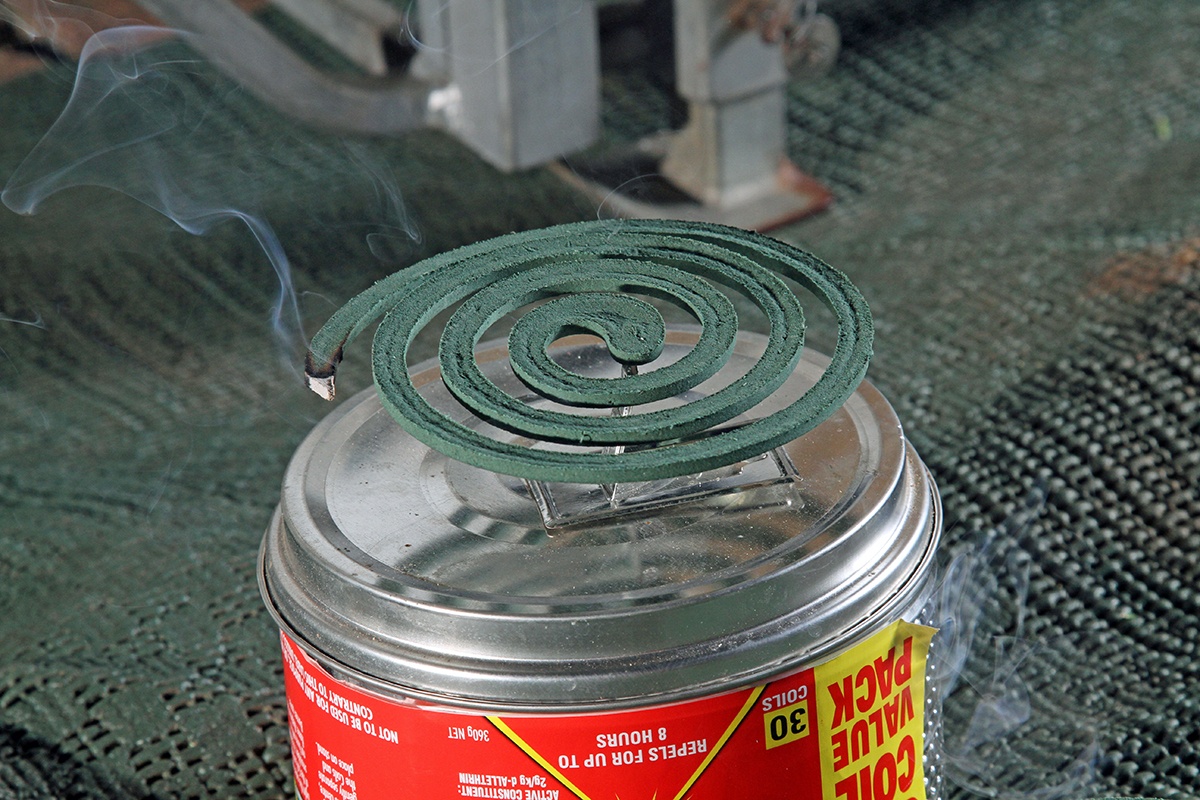
Mosquito coils are widely used in Third World countries and are made from a dried paste of pyrethrum powder. They provide up to eight hours of use with up to 80 per cent protection but do produce a lot of smoke, which may not suit you. Citronella candles appear to offer similar levels of protection and function in a similar manner. Soft plastic bands sold as repellents are widely available but for best results opt for those impregnated with DEET.
“Bug zappers”, which employ ultraviolet light to attract insects into their presence, have only a marginal effect on insect pest numbers but do kill huge percentages of environmentally-friendly insects, such as butterflies, moths and ladybirds. Foggers and sprayers also impact the environment by killing everything, from earthworms to dragonflies (which are a natural predator to mosquitoes) and ultimately expose insects to insecticides which they can adapt to within as little as six generations. Depending on where you camp, dried cow (or horse) dung can be burnt to ward off mosquitoes. This is an ancient and well-proven method practised by people all over the world.

